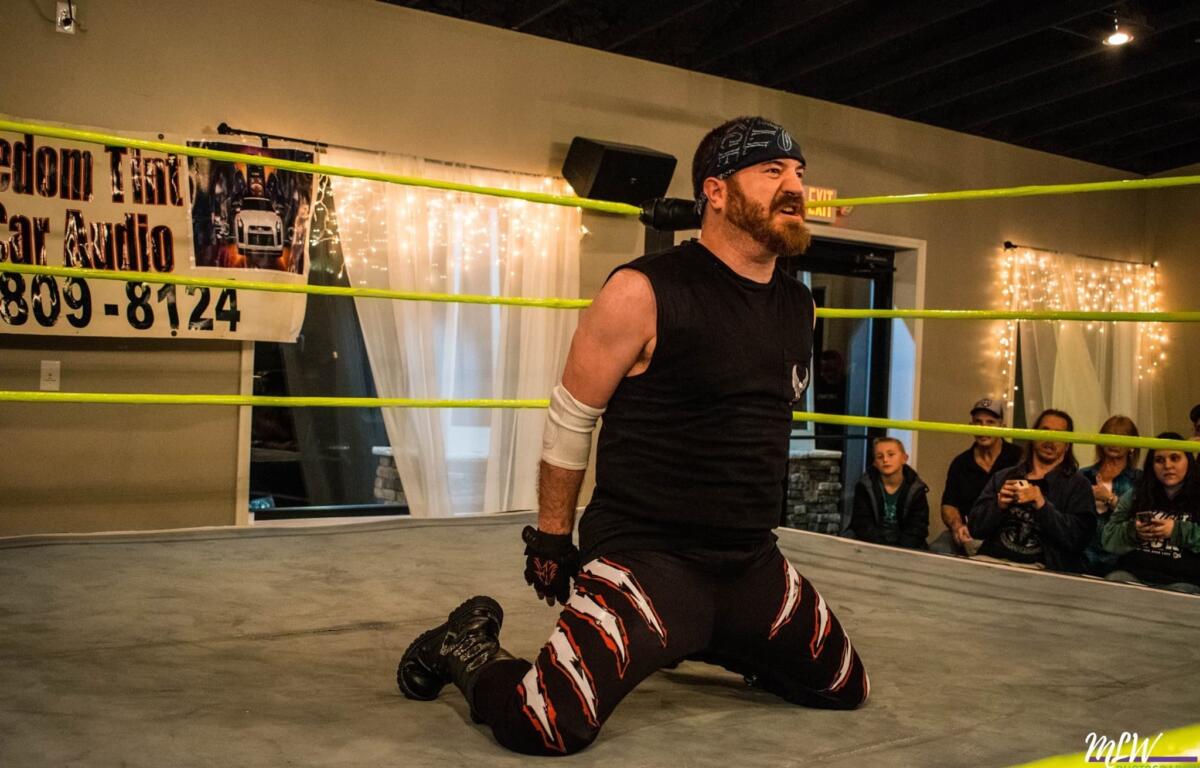CLARKSVILLE, TN (CLARKSVILLE NOW) – Yesenia Chaote was diagnosed with attention-deficit/hyperactivity disorder (ADHD) and Asperger’s syndrome when they were in elementary school, only to be reclassified under autism as an adult.
Dustin Rybolt shares a similar story, being diagnosed with Asperger’s as a child after his parents noticed he had trouble communicating with his peers.
But life doesn’t stop with an autism diagnosis; it is only the beginning, and there’s an array of misconceptions to work through.
Wrestling to the top
Rybolt, 33, known as Dusty by his friends, has been a pro wrestler with Tried N True Wrestling for nearly five years. Being a pro wrestler has been his dream since he was a kid, but for a while, he didn’t know if it would happen due to his Asperger’s, a form of autism.
“It can be very challenging because I have to have my parents or my family drive me to events,” Rybolt said. “But I can do my own laundry, I can cook my own food and do my own dishes.”

Rybolt told Clarksville Now that autism has affected him physically, but more noticeable are the social effects he has had to work through.
“Sometimes when you’re autistic, you start to distance yourself from people,” Rybolt said. He also said it has made it more difficult to date, especially those who are neurotypical.
“Dating people with Asperger’s (can be) tough, but they just want to be accepted like every other person in this world,” he said.
After years of feeling misunderstood, Rybolt said, he found a teacher who got him involved with Special Olympics. He took part in it from 1999 to 2017, prior to getting involved with Tried N True.
He was able to take part in various sports that helped him get out of his shell, including ice skating, roller skating, bowling, basketball and track and field.
“I could relate to those kids with autism, and I felt like I belonged somewhere,” Rybolt said.
When the pandemic hit, Rybolt said he spent two years mostly confined to his house with no wrestling training and no ability to be around his friends.
“I felt like I was trapped, and COVID took a real hit on my mental health,” Rybolt said. But things are slowly getting better.
Rybolt said being autistic has made life interesting, but he wishes more people knew more about autism.
“It’s not too late to learn more about autism and Asperger’s,” Rybolt said. “Love them the best way you can, and if they want to achieve their dreams, don’t stop them.”
‘Autism is my superpower’
Yesenia Chaote, 24, is a model and a makeup artist. Doing freelance work can be difficult, they told Clarksville Now.
“Being a gig creator, I set up appointments. I have straight up had days where emotionally I have been so broken down that I have had to cancel appointments,” Chaote said. “Then there are other days where I feel like my autism really helps me.”
Chaote said having autism can sometimes be their creative superpower. One example they gave was this makeup look they did in half an hour for a photoshoot.

Chaote said most of their young life was spent with not just social anxiety, but social disconnection. It wasn’t until Chaote’s adult life that they were rediagnosed from Asperger’s to autism.
“I find while autism is a spectrum, a lot of people when they hear Asperger’s automatically assume that you’re on a low end of that spectrum or there’s a high end of that spectrum when that’s truthfully not the case,” Chaote said.
“It’s not a 1 to 10 with 1 being fairly normal with social anxiety and 10 being physically and verbally disabled. It’s more like a pie chart where there are all of these different symptoms that come from Asperger’s where you may have low verbal symptoms, but incredibly high imaginative symptoms,” Chaote told Clarksville Now.
Chaote was diagnosed at about age 7, and they spent a lot of time in special education programs and speech therapy, but that didn’t address some of their emotional and behavioral needs.
“Humans come in various types of personalities, races, genders, all kinds of things, right? Neurotypes are also one of those things,” Chaote said.
Unlike Rybolt, Chaote said they came from an emotionally neglectful family, and having autism hasn’t made those feelings easier to deal with.
“I have a lot of affective lonely feelings,” Chaote said. “I’m very attached to my caregivers, I’m very attached to my favorite people, and because of that reason any small amount of conflict sometimes can make my rejection dysphoria flare up.”
Chaote encourages parents to trust themselves if they think they may have a neurodivergent child.
“It’s OK to raise your children as special children. Nowadays, I feel like we think not everyone can be special, but yeah, we can. Every single person that exists on this planet is a special, unique individual,” Chaote said. “Raise your kids to be the adults that you want them to be.”


